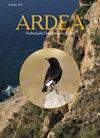优先保护和研究不知名物种:以鹌鹑为例
IF 1.3
4区 生物学
Q3 ORNITHOLOGY
引用次数: 0
摘要
鸟类物种的保护状况评估对于优先开展保护和监测工作至关重要;然而,由于缺乏实地数据或科学知识,这并不总是可能实现的。在这种情况下,公民科学平台可以作为数据源,优先考虑一个地区或特定分类群内的保护和研究资源。我们将国际鸟盟提供的鸟类分布区信息和主要的公民科学观鸟应用程序eBird的实地观察结果相结合,以鲜为人知的扣鹌鹑(Turnicidae)为例,创建了一个关注指数。这一关注指数基于两个参数:稀缺性和不确定性,这两个参数最终分别基于两个组成部分。对于每一个物种,我们将稀缺性定义为其出现频率(阳性电子鸟类检查表的比例)和相对范围大小的组合,而不确定性是电子鸟类努力(电子鸟类检查单的密度)和范围准确性(鸟盟分布区内阳性电子鸟类查单的比例)的组合。我们发现,我们的关注指数与世界自然保护联盟对所有扣鹌鹑物种的威胁类别之间存在高度相关性(Spearman r=0.74)。然后,我们将这一关注指数应用于所有纽扣鹌鹑亚种,获得了这些未评估分类群的排名列表,其中一些岛屿特有亚种与最濒危的纽扣鹌鹑物种一起排名很高。我们的方法是一种非常简单的方法,可以对给定鸟类群中的物种进行排名,并优先考虑监测和保护工作。此外,它也适用于作为亚种的其他分类水平,甚至适用于作为种群的生态单元,这些生态单元通常缺乏正式的保护状态评估。本文章由计算机程序翻译,如有差异,请以英文原文为准。
Prioritizing Conservation and Research Effort for Poorly Known Species: The Buttonquails (Turnicidae) as a Study Case
Conservation status assessment of bird species is essential to prioritize conservation and monitoring efforts; however, this is not always possible to achieve due to lack of field data or scientific knowledge. In this context citizen science platforms can act as a data source to prioritize the conservation and research resources within a region or a given taxonomic group. Merging the available information on bird distribution areas from BirdLife International and field observations from eBird, the main citizen science birding app, we create a concern index, using the poorly known buttonquails (Turnicidae) as a case study. This concern index is based on two parameters: scarcity and uncertainty, which ultimately are based on two components, respectively. For every species, we defined scarcity as a combination of its frequency of occurrence (proportion of positive eBird checklists) and its relative range size, while uncertainty is a combination of the eBird effort (density of eBird checklists) and the range accuracy (proportion of positive eBird checklists within the BirdLife distribution area). We found a high correlation (Spearman r = 0.74) between our concern index and the IUCN threat categories for all buttonquail species. Then we apply this concern index to all buttonquail subspecies obtaining a ranked list for these non-assessed taxa, with some island endemic subspecies ranking very high together with the most endangered buttonquail species. Our approach is a very simple method to rank species within a given bird group and prioritize monitoring and conservation efforts. Moreover, it is also suitable for other taxonomic levels as subspecies or even for ecological units as populations, which normally lack a formal conservation status assessment.
求助全文
通过发布文献求助,成功后即可免费获取论文全文。
去求助
来源期刊

Ardea
生物-鸟类学
CiteScore
2.10
自引率
0.00%
发文量
49
审稿时长
>12 weeks
期刊介绍:
Ardea is the scientific journal of the Netherlands Ornithologists'' Union, and is published since 1912. The journal welcomes manuscripts reporting significant new findings in ornithology, in particular those covering the ecology, life history, and evolution of birds, and including sound descriptive work. Ardea publishes Original research papers, Short notes and Book reviews. In addition to the regular three issues per year, Ardea publishes specials that contain conference or workshop proceedings (produced on request).
 求助内容:
求助内容: 应助结果提醒方式:
应助结果提醒方式:


